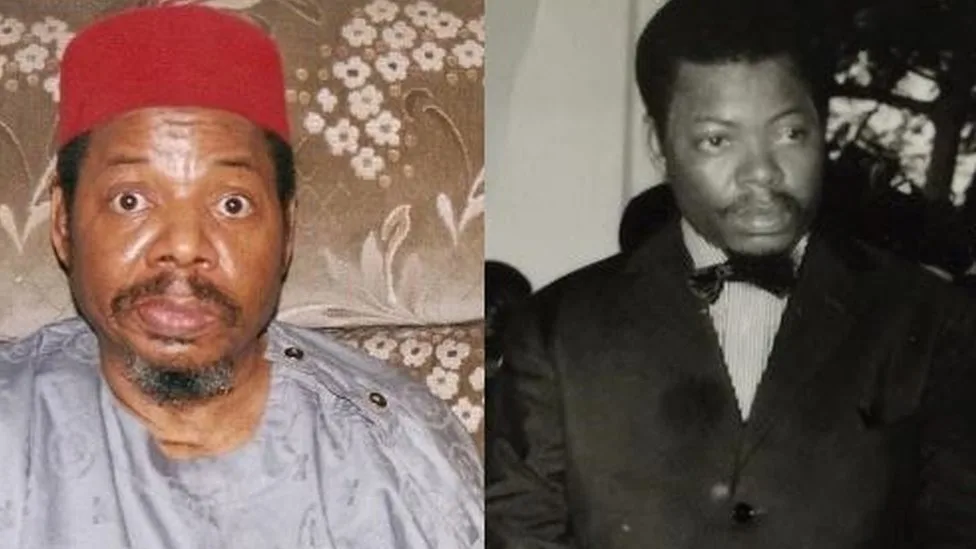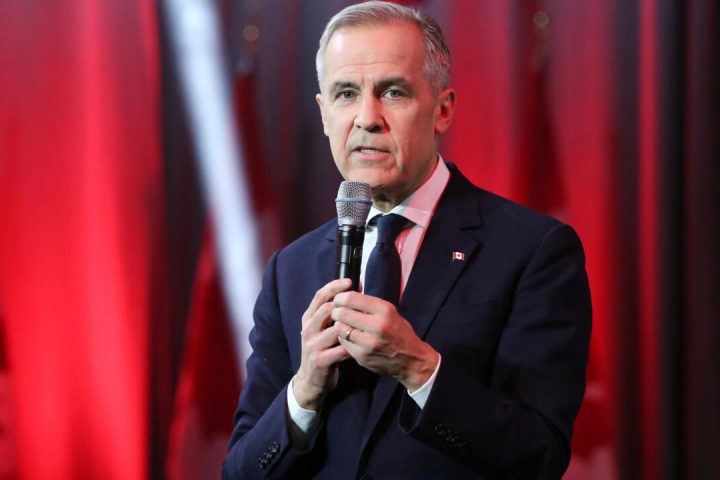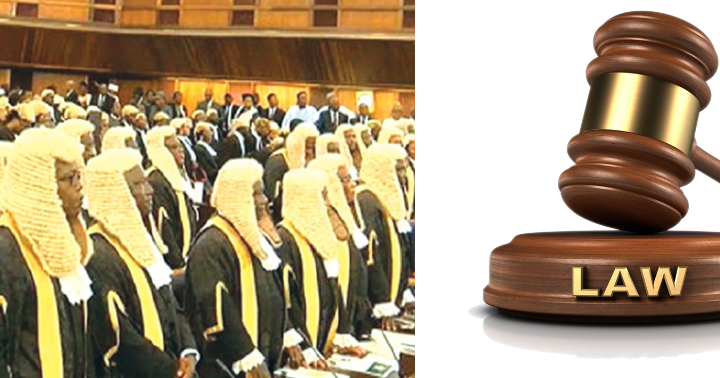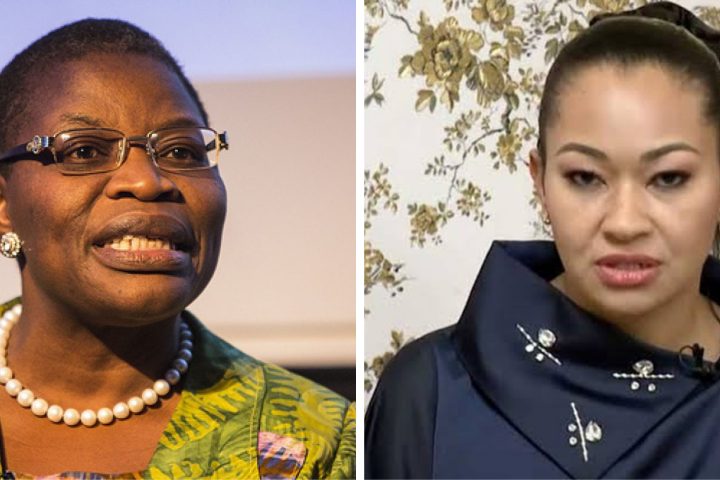By C Don Adinuba
I was in junior secondary school in July 1975 when Yakubu Gowon was overthrown in a military coup d’etat, together with his 12 state governors. Like most people from East Central State, my joy knew no bounds. And the excitement sprang not so much from the ouster of the Gowon regime as from the removal of the Administrator of East Central State, Anthony Ukpabi Asika. But 29 years later when Asika breathed his last and was subsequently committed to Mother Earth, I felt a deep sense of loss. Asika had become a great friend of mine, and it is perhaps a mark of our friendship that I was probably the last visitor he had in his Adetokunbo Ademola Street residence in Victoria Island, Lagos, before he was 10 years ago struck by a stroke which confined him to the wheel chair until he gave up the ghost on September 14, 2004. When I visited Asika on that Sunday afternoon, little did anyone know that it was the last time I would see him healthy, in his elements, piping away with his famed aristocratic airs, arguing, probing and interrogating all kinds of subjects. He had requested I bring my fiancé, Julie who is today my great wife, for an informal chat in his home to find out if I was making a proper choice. His wife who was to become President Olusegun Obasanjo’s Special Assistant on the New Partnership for Africa’s Development was visiting from Onitsha, and had waited unsuccessfully for Julie and myself before returning to the East.
The applause which greeted Asika’s removal as the ECS Administrator in 1975 had nothing to do with his development record in office, but arose out of his personification of resistance from within to the
Biafran struggle of 1967 to 1970 during which the former Eastern Region made a determined effort to pull out of the Nigerian federation. The former Eastern Nigerians still regard the Biafran drama as their most heroic and admirable episode in history, and any of their own number against it is considered a saboteur, a fifth columnist. Asika was appointed the Administrator of East Central State at the beginning of the war, a position he accepted in keeping with his philosophy and vision of “One Nigeria”, Africa’s equivalent of the United States of America, a big nation on the African continent providing sound leadership and serving as a source of pride to blacks the world over. When he accepted the offer, not only did his family deny and ostracise him, the family changed its name! It did not want to be associated with him in any way.
The erstwhile Biafrans never forgave Asika even in death. Southeast governors who paid glowing tributes to him did so perfunctorily, that is, they had to honour him because of their office; he was their predecessor. The absence of the cream of the Igbo leadership at his burial was no coincidence. The long memory of hate, as Ali Mazrui would put it, which the Southeast displayed towards Asika is rather unusual. After all, the Igbo long ago pardoned such “prodigal” Biafran sons as S.G. Ikoku who were with the Federalists during the war. When Ikoku died some 13 years ago, la crème de la Igbo society honoured him fully. Asika’s failure to be politically reintegrated with his kith and kin owes to the fact of his being extraordinarily self-willed, whether in personal, family or public matters. Once he believed in the rightness of any cause and took a stand, it was quite difficult, if not impossible, to get him to toe a different line. He had the capacity of swimming against the flow of popular sentiments.
The Igbo failure to accord Asika a better place in their collective memory is not only because of his part during the Nigerian-Biafran war, contrary to received wisdom. The failure must be traced to a certain iconoclasm in Asika. He challenged icons and sacred symbols in the East. He had a running battle with the Church when his administration led the government acquisition of private schools throughout the country. He also had personal differences with the church authorities, especially the admired Catholic Bishop of Enugu Diocese, Godfrey Mary Okoye. He disagreed with his Onitsha people over the proceeds from the Onitsha markets and, worst of all, he publicly disagreed with The Great Zik of Africa. It is most unlikely that anyone who was so audacious to do all this could still have a favourable verdict from Easterners, whatever attributes and achievements he may have to his credit.
READ ALSO: ARCHBISHOP OKEKE: Anambra Mission Schools Now Role Models For Excellence, Discipline
Asika’s greatest mistake in office was arguably the takeover of schools. He was the only intellectual in Gowon’s Supreme Military Council, and immediately he started the policy other state governors followed. Everyone agrees that the forcible acquisition was to produce devastating results in all facets of our national existence.
Two closely related factors account for the takeover. The first is his lack of interest in religion, Particularly Christianity. Though raised in the Catholic tradition, he quite early in life developed a lukewarm attitude to the Church. He did not fancy the idea of going to confession. “How would I tell the priest from time to time that as a young man I was involved in bachelor pranks?” he once asked me rhetorically, bursting into a paroxysm of Homeric laughter.
The second factor for the takeover of private educational institutions, most of which were either owned or managed by the Church, was Asika’s desire to prevent what he feared was an impending sectarian implosion. He was convinced that there already existed incipient religious fanaticism in East Central State where the Anglican Church and the Catholic Church in particular engaged in a fierce battle for supremacy, for the soul of the people. The Anglican faith came to Nigeria from Britain while the Catholic missionaries in the East were Irish members of the French-based Congregation of the Holy Spirit [C.S.sp]. Their schools had become vehicles for undue sectarian mobilization, Asika argued. He, therefore, decided to acquire them in the overriding public interest. On no account, he believed passionately, should the East be allowed to become the Northern Ireland of Africa.
Because West Africa’s largest market is situated in the historic city on the Niger, the Onitsha people benefited immensely from it through various rates which the traders were paying. Asika felt that the money should be paid only to the state government which built the market. This idea did not go down with fellow Onitsha indigenes who protested long and vehemently. He stood his ground. Consequently he became completely alienated amongst his own people, some of whom had erroneously thought that with one of their number at the helm of affairs, it was now their turn to lord it over the rest of the state.
Against the strong position of the Onitsha indigenous community, Asika made it possible for anyone who could afford it to own a shop in the commercial city. Until the new policy, non-Onitsha residents and entrepreneurs could be tenants but not landlords of market stalls and shops. The traders association of Onitsha traders displayed a unique sense of history when it closed all markets in honour of Asika, and walked for kilometers to pay his family in an unprecedented number.
Asika’s disagreement with Zik was celebrated in the media, especially the Sunday Times which boosted its sales enormously with the intellectually stimulating exchanges between the two gifted political scientists trained in America who had a tremendous facility with the English language. Asika borrowed the words of former American Vice President Spiro Agnew and spoke of “the nattering nabobs of negativism”, in reference to an un-named but obvious citizen who had been “ex this and ex that”. Trust the Great Zik of Africa– former premier of Eastern Nigeria, former Governor General of Nigeria, former Senate President, former Nigeria’s President– to have the last word on a memorable and admirable note. “No condition is permanent”, Zik reminded the administrator who was then in his early 30s. Zik also reminded Asika of un-named but obvious son of an ex post master who was also an ex-doctoral candidate at University of California, Los Angeles.
The altercation between the two Onitsha sons has led some commentators to think that there was, indeed, enormous bad blood between them. I know that Asika never regarded the verbal exchanges as anything beyond an entertaining intellectual exercise. If Asika had an only regret in life, it was his failure to write a biography of Zik. He and I had begun to gather material for this book when he was afflicted by stroke. He considered Zik a role model and it was in admiration of the Great Zik that after emerging the best student of Economics at the University College in Ibadan, he did post graduate studies in Political Science at the University of California where he specialized in Political Sociology. The late Claude Ake, who led his Economics class at Ibadan the next year, followed the Asika example by doing the post graduate programme in Political Science, though in Canada.
At UCLA, Asika came under the influence of the legendary James S. Coleman whom he adored as a genius. Coleman was a sergeant in 1939 at the beginning of World War II, but at the cessation of hostilities in 1945 he had risen to colonel. Despite a particularly rosy future in the military, Coleman resigned his commission to pursue a career in academia. Within a short period, he had become one of the most respected academics in the world, serving on the editorial board of American Political Science Review, the most prestigious Political Science journal in the West. Coleman wrote the classic, “Nigeria: Background To Nationalism.” It was this scholar who called serious attention to the fascinating genre of literature in Onitsha in the 1960s known as Onitsha Market Literature. Coleman was a visiting professor at the University College in Ibadan and at the University College, Makerere in Uganda; at Makerere, he, together with the neo radical British scholar Collin Leys, took the unprecedented step of making Ali Mazrui a full professor when the young Kenyan was a mere lecturer still to defend his doctoral dissertation at Oxford. Mazrui, while a student, had begun to publish in two of the world’s greatest journals where many distinguished scholars had not been able to publish.
Asika was endowed with a prodigious intellect. While a teenage student at Edo College in Benin City where he did his General Certificate of Education `Advanced Level” papers, he took exception to a statement by the French missionary, medical doctor and theologian, Albert Schweitzer, to the effect that “the African is my cousin, but a younger cousin.” He considered the statement, at worst, racist and, at best, patronizing. Mazrui is at present holding at the State University of New York at Binghamton a distinguished professorial chair endowed in memory of Albert Schweitzer.
Though a social scientist, Asika was offered the editorship of the eminently influential literary journal, Transition; he could not accept edit one issue of the journal because he was almost immediately appointed Administrator of East Central State, thus enabling Wole Soyinka, the 1986 Nobel Prize winner in Literature, to edit it. The offer was a mark of his versatility.
When my good friend, George Ike Okoye, who was between 1999 and 2003 a member of the Anambra State House of Assembly, wanted to join the Social Democratic Party in the 1990s and run for a seat in the House of Representatives, he came to Lagos and requested I assist him meet Pius Okigbo, Chuba Okadigbo and Ukpabi Asika, among other brilliant and eminent Anambra people in Lagos. Okoye is an exceptionally brilliant person, ambitious and mercurial and delighted in controversy. He made Aggregate Six in his school certificate examination and earned a first class in Architecture from the University of Nigeria before becoming a teacher at the Enugu State University of Science and Technology. After a two-hour discussion with Asika on various topics, he exclaimed the moment we were out of the office: “This man’s observations about traditional Igbo architecture have made me look not so lettered!”
During the brief period Asika was a lecturer at the University of Ibadan, he was widely regarded as a scintillating scholar. His students in those days like Andy Akporugo and Tonie Iredia (former Director General of the Nigerian Television Authority) speak nostalgically about the catholicity and depth of his analyses and philosophical speculation. If he had remained a little longer as an academic, he certainly would have emerged one of the best known international scholars from Africa. As the Administrator of East Central State, it was self-evident that an authentic intellectual was in the saddle. His cabinet was composed of very bright men and women as well as writers like Mrs Flora Nwapa-Nwakuche. He set up
the Writers Workshop in Enugu, with Obi Egbuna the novelist and essayist as the director. He brought Jerry Okoro from Times of London to become the editor in chief of the state-owned newspaper which he christened Renaissance, an apt name after the war. The government-owned Paramount Hotel became known as Phoenix Hotel, after the mythical Greek bird which dies and rises from its ashes and becomes even stronger. He gave a pride of place to such brilliant writers but socially difficult people like Agwu Okpanku. He promoted Eddie Iroh, the present (now former) Director General of Radio Nigeria from salary grade level 06 to, I think, 10 or 12 because of his extraordinary talent, a dramatic promotion reminiscent of Ali Mazrui’s at Makerere. As in Mazrui’s, Iroh has since more than justified the meteoric rise.
Under Asika’s leadership, East Central State which is now known as the Southeast geopolitical zone of Nigeria witnessed a fantastic boom in arts and culture. Apart from the writings of Chinua Achebe, Cyprian Ekwensi, Chukwuemeka Ike and many others which flourished, there was the famous Nkpokiti Dance troupe from Umunze which always won the first prize in every national arts festival, and he quickly named one of the finest roads in upper scale area of Independence Layout in Enugu for the dance troupe. There also emerged many dance bands which the administrator went out of his way to promote. Among these groups were the Wings, Peacocks, Oriental Brothers, Dan Ian, etc. Asika was not a philistine, but a man of high and refined culture, with a sophisticated taste. His insights into various aspects of Nigerian society were very original and disarming.
One area where Asika made a monumental contribution but which is hardly appreciated is the development of football, especially in the formation of Rangers Football Club of Enugu. He worked so hard with Jerry Enyeazu, the state Director of Sports, Dan Anyiam and one W.W. Ibe, a prosperous Enugu-based businessman, to gather the young men who had just emerged from the civil war to channel their energies into some positive use. Rangers was projected as the new face of the Igbo: ready to take on the world in a peaceful way and win. Rangers thus began to enjoy near-cult devotion. When Rangers won the 1974 National Challenge football competition, Asika was so proud of them that he directed the club to visit every division in the state with the cup, and a public holiday was declared everywhere they visited. I was one of the school children who welcomed the Rangers heroes when they came to Ihiala, and I remained not just a fan but a fanatic of the football team until the very day it lost 0-3 to Bendel Insurers in the Challenge Cup final match in 1978; I have since then not listened to any live football commentary. Asika went a step further by naming one of the most important streets near Government House in Enugu Rangers Avenue. After the devastating civil war, the Igbo could not have asked for a more spirit-lifting and confidence-building body which conquered the Nigerian football scene in a way no team had ever done. Sport, declared Bertrand Russell in his prestigious BBC Reith Lectures, is war by other means.
Not someone to shy away from a great idea or achievement, Asika was genuinely moved by the stunning achievements of Biafran scientists and engineers. He established the Project Development Agency (PRODA) in Enugu and staffed it with some of the creative Biafran innovators. PRODA, in spite of paralysing financial constraints, remained an eloquent statement of what Nigerians could do until recently when, like any other government body, it has been in the throes of death.
Asika had tremendous persuasive skills. He was General Gowon’s closest adviser, even though he was a civilian working under a military regime. It was, for instance, he who advised Gowon to make Olusegun Obasanjo the Federal Commissioner for Works. He even nominated Obasanjo to attend a course in the Army Staff College at Camberly, England, and gave Obasanjo some books in the humanities to brush up his knowledge before arriving at Camberly. Asika used his high intelligence quotient and close relationship with Gowon for the benefit of his Eastern people. He worked so hard to ensure that no reprisals were taken against the former Biafrans at the cessation of hostilities in January, 1970. He coined such expressions as “No Victor, No Vanquished”. Both the idea and coinage of the Federal Government’s “Rehabilitation, Reconstruction and Reconciliation” programme were his. In other words, the reintegration of the former Eastern Nigerians no sooner than the war ended had Asika’s unmistakable signature.
On his own turf of East Central State, he carried out massive reconstruction with religious fervour. Within a short period, most infrastructure damaged during the war was rehabilitated.
Manufacturing companies like the Nigerian Cement Company at Nkalagu, Aba Textile Mills and Standard Shoe Factory in Owerri as well hotels like the imposing Hotel Presidential shed their civil war look. In addition, new industries like the Sunsweet Company in Onitsha (now called Limca Company] were built.
It is one of the great paradoxes in Nigeria that someone like Asika who obviously did so much for his people was treated like a political pariah throughout his life, and in death even the most liberal and lettered of his people considered him a traitor who committed a mortal sin. Interestingly, the same Igbo leadership would not see anything fundamentally reprehensible about dealing with a character like Senator Francis Arthur Nzeribe who supplied arms and ammunition to the Nigerian Federal Government for the annihilation of his own people during the war.
My great friend, Anthony Ukpabi Asika, the Ajie of Onitsha, was a gifted dealer in words and ideas, a provocative scholar, a man with the courage of his convictions and one of Nigeria’s noblest souls of the 20th century. He was a great Igbo man.
So long.
Adinuba is head of Discovery Public Affairs Consulting.

















Follow Us